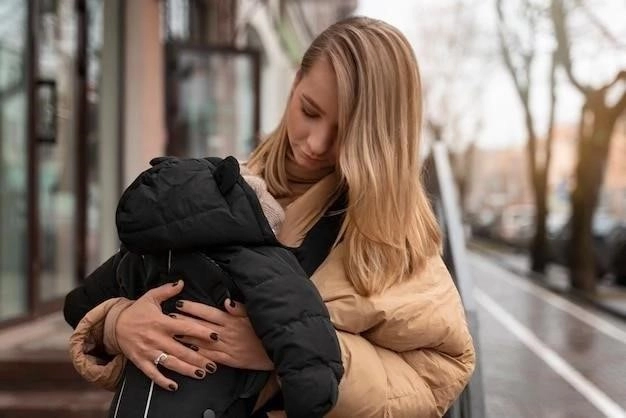Forgiveness. Its a concept often discussed but not always easily practiced. We hear it preached from pulpits, advised by therapists, and whispered as the antidote to lingering hurt. But what is forgiveness, really? And how can embracing this seemingly simple act unlock a wealth of mental, emotional, and even physical benefits?
Defining Forgiveness
Forgiveness is not about absolving someone of their actions or pretending that what they did was acceptable. Its also not about forgetting the pain inflicted or reconciling with the person who caused harm. At its core, forgiveness is a conscious and deliberate decision to release the grip of resentment, anger, and bitterness that we hold towards someone who has wronged us. Its a gift we give ourselves – a release from the heavy chains of negativity that prevent us from moving forward.
The Science of Letting Go
While forgiveness might seem like a purely emotional act, scientific research reveals its profound impact on our well-being. Studies have shown a strong correlation between forgiveness and:
- Improved Mental Health: Forgiveness has been linked to lower levels of stress, anxiety, and depression. It can also lead to greater feelings of peace, happiness, and overall life satisfaction.
- Enhanced Physical Health: The benefits of forgiveness extend beyond our minds. Studies have shown a connection between forgiveness and lower blood pressure, reduced risk of heart disease, and even improved sleep quality.
- Stronger Relationships: Holding onto grudges can poison relationships, creating distance and resentment. Forgiveness, on the other hand, allows us to mend broken bonds, rebuild trust, and cultivate healthier connections.
- Increased Empathy and Compassion: When we practice forgiveness, we open ourselves up to understanding the perspectives of others, fostering empathy and compassion – even for those who have hurt us.
The Path to Forgiveness: A Journey, Not a Destination
Forgiveness is not a one-time event; its a process that unfolds over time. Its a journey that requires patience, self-compassion, and a willingness to confront our pain. Here are some steps that can guide you on this transformative path:
1. Acknowledge and Accept Your Pain:
The first step towards forgiveness is acknowledging the hurt youve experienced. Allow yourself to feel the pain, anger, and resentment without judgment. Suppressing these emotions will only prolong the healing process.
2. Cultivate Empathy:
Try to understand the situation from the offenders perspective. While this doesnt excuse their actions, it can help you develop compassion and potentially see the situation in a new light;
3. Practice Self-Compassion:
Be kind to yourself throughout this process. Forgiveness takes time, and its okay to stumble along the way. Remind yourself that you deserve peace and happiness, and holding onto anger will only hurt you in the long run.
4. Choose to Forgive:
Forgiveness is a conscious decision; Its about releasing the offender from your judgment and choosing to move forward without the burden of resentment. Remember, forgiveness is not about them; its about liberating yourself.
5. Seek Support:
Dont be afraid to reach out for support. Talking to a therapist, counselor, or trusted friend can provide a safe space to process your emotions and navigate the challenges of forgiveness.
The Transformative Power of Forgiveness
Forgiveness is not a sign of weakness; its an act of courage and strength. It requires vulnerability, self-awareness, and a deep commitment to our own well-being. By embracing forgiveness, we choose to break free from the shackles of the past and step into a brighter, more fulfilling future. Its a gift we give ourselves – a pathway to healing, growth, and a life filled with peace, compassion, and joy.
Navigating the Nuances of Forgiveness
While the benefits of forgiveness are compelling and well-documented, its crucial to approach this process with a nuanced understanding. Forgiveness is not a linear path, nor is it a singular act. Its a multifaceted journey that unfolds uniquely for each individual and circumstance. Here are some key considerations:
1. Differentiating Forgiveness from Reconciliation:
Forgiveness and reconciliation are often conflated, but they are distinct concepts. Forgiveness is an internal process of releasing negative emotions, while reconciliation involves re-establishing a relationship with the offender. Its essential to recognize that forgiveness does not necessitate reconciliation, especially if the relationship is unsafe or unhealthy.
2. Acknowledging the Role of Justice:
Forgiveness does not negate the need for justice or accountability. In situations involving harm or abuse, seeking justice through legal channels or other means can be an integral part of the healing process. Forgiveness can coexist with holding individuals accountable for their actions.
3. Embracing the Complexity of Emotions:
The journey of forgiveness is rarely smooth or straightforward. Its normal to experience a range of complex emotions, including anger, sadness, confusion, and even moments of doubt. Acknowledge these feelings without judgment and allow yourself the space and time to process them fully.
4. Recognizing the Power of Self-Forgiveness:
Often, the most challenging person to forgive is ourselves. We may harbor guilt, shame, or self-blame for past actions or circumstances. Practicing self-compassion and extending forgiveness to ourselves is a crucial step in the healing process and can pave the way for forgiving others.
The Ongoing Practice of Forgiveness
Forgiveness is not a destination but an ongoing practice. Its a commitment to choosing compassion over bitterness, understanding over judgment, and ultimately, freedom over resentment. As we cultivate forgiveness in our lives, we open ourselves to a world of possibilities, where healing, growth, and genuine connection can flourish.
Cultivating a Forgiving Heart: Practical Strategies for Letting Go
Forgiveness, while a profound act of self-liberation, often requires deliberate effort and a willingness to challenge ingrained patterns of thinking and feeling. Here are some practical strategies to help cultivate a more forgiving heart:
1. Practice Gratitude:
Shifting our focus from what weve lost or the wrongs weve endured to appreciating the good in our lives can be transformative. Regularly reflecting on people, experiences, or even simple pleasures that spark gratitude can foster a more positive emotional state, making it easier to let go of resentment.
2. Engage in Mindfulness Meditation:
Mindfulness practices, such as meditation, encourage us to observe our thoughts and feelings without judgment. This non-reactive awareness allows us to detach from negative emotions, reducing their grip on our well-being and paving the way for forgiveness.
3. Reframe the Narrative:
Often, we replay hurtful events in our minds, fueling anger and resentment. Try reframing the narrative by focusing on the lessons learned or the personal growth that emerged from the experience. This shift in perspective can diminish the power the past holds over us.
4. Engage in Acts of Kindness:
Extending kindness to others, even small acts of generosity or compassion, can have a ripple effect on our well-being. By focusing on spreading positivity, we naturally counteract negativity within ourselves, creating a more fertile ground for forgiveness to take root.
5. Seek Professional Guidance:
If you find yourself struggling to forgive, seeking guidance from a therapist or counselor can be invaluable. They can provide a safe and supportive space to explore the root of your resentment, develop coping mechanisms, and navigate the forgiveness process at your own pace.
The Ripple Effect of Forgiveness
The act of forgiveness extends far beyond the individual. When we choose to let go of grudges and embrace compassion, we contribute to a more harmonious and understanding world. Forgiveness has the power to heal relationships, mend communities, and inspire a ripple effect of kindness and empathy that can transform lives.
Remember, forgiveness is not a sign of weakness but a testament to our strength and resilience. It’s a journey of self-discovery, healing, and liberation, leading us towards a life filled with greater peace, joy, and meaningful connections.
The Neurobiology of Forgiveness: A Look at the Science
Emerging research in neuroscience sheds light on the profound impact forgiveness has on our brains, further validating its benefits for mental and physical well-being. Holding onto grudges and resentment keeps the stress response system chronically activated, leading to a surge in cortisol and other stress hormones. This prolonged state of stress can have detrimental effects on various bodily systems, increasing the risk of cardiovascular disease, impaired immune function, and mental health issues like anxiety and depression.
Conversely, studies using fMRI scans have shown that the act of forgiveness activates brain regions associated with empathy, emotional regulation, and moral reasoning, including the prefrontal cortex, anterior cingulate cortex, and insula. These areas play a crucial role in inhibiting impulsive reactions, promoting perspective-taking, and fostering feelings of compassion and understanding.
Furthermore, forgiveness has been linked to increased activity in the brains reward circuitry, particularly the release of dopamine, a neurotransmitter associated with pleasure and motivation. This suggests that forgiveness can be inherently rewarding, promoting feelings of satisfaction, peace, and emotional well-being.
Forgiveness as a Public Health Imperative
Given the compelling evidence linking forgiveness to improved mental, emotional, and physical health, its time to consider its implications for public health initiatives. Fostering a culture of forgiveness could have far-reaching benefits, reducing societal levels of anger, aggression, and conflict while promoting empathy, compassion, and prosocial behavior.
Integrating forgiveness-promoting programs into educational curricula, community outreach initiatives, and even workplace wellness programs could empower individuals with the tools and skills needed to navigate interpersonal conflict constructively and build more resilient, harmonious communities.

Cultivating a Future Rooted in Forgiveness
Forgiveness, both on an individual and collective level, holds immense potential for creating a more compassionate and peaceful world. By understanding its multifaceted nature, exploring evidence-based strategies for its cultivation, and acknowledging its profound impact on our brains and bodies, we can harness the transformative power of forgiveness to heal wounds, bridge divides, and foster a future where understanding, empathy, and reconciliation pave the way for a brighter tomorrow.
The Societal Implications of Forgiveness: A Macro Perspective
While often viewed through a personal lens, the act of forgiveness holds significant implications for the collective well-being of society. When cultivated on a larger scale, forgiveness has the potential to foster social cohesion, reduce conflict, and promote a more just and equitable world.
1. Bridging Divides and Healing Societal Wounds:
History is replete with examples of deep-seated conflicts rooted in historical injustices, prejudice, and systemic oppression. Forgiveness, in these contexts, does not equate to condoning or forgetting past wrongs. Instead, it serves as a catalyst for dialogue, reconciliation, and ultimately, the dismantling of systems that perpetuate harm. By acknowledging past grievances, engaging in truth and reconciliation processes, and actively working towards restorative justice, communities can begin the arduous but essential work of healing societal wounds.
2. Reducing Violence and Promoting Peacebuilding Efforts:
Unresolved anger, resentment, and the desire for revenge are often underlying drivers of violence and conflict. Forgiveness, conversely, offers an alternative path forward, one that prioritizes understanding, empathy, and non-violent conflict resolution. By promoting forgiveness at the grassroots level, through community dialogues, educational programs, and restorative justice initiatives, societies can begin to shift cultural norms away from retribution and towards peaceful coexistence.
3. Fostering Political and Civic Engagement:
A polarized political landscape often thrives on division, blame, and an unwillingness to engage in meaningful dialogue. Cultivating forgiveness within the political sphere, while challenging, is essential for fostering constructive discourse, finding common ground, and working towards solutions that benefit the collective good. By encouraging empathy, understanding, and a willingness to see beyond partisan divides, forgiveness can pave the way for a more civil and productive political process.

Integrating Forgiveness into Public Policy and Institutions
Recognizing the societal benefits of forgiveness necessitates a paradigm shift in how we approach justice, conflict resolution, and social healing. Integrating forgiveness-promoting principles and practices into public policy and institutions can create a more compassionate and equitable society.
1. Educational Reform:
Incorporating social-emotional learning programs that emphasize empathy, conflict resolution, and forgiveness into school curricula can equip future generations with the tools needed to navigate interpersonal challenges constructively and build more inclusive communities.
2. Criminal Justice Reform:
Exploring restorative justice models that prioritize accountability, rehabilitation, and victim-offender dialogue over punitive measures can foster healing, reduce recidivism rates, and promote a more humane and effective criminal justice system.
3. Community-Based Initiatives:
Supporting community organizations and initiatives that facilitate dialogue, promote intergroup understanding, and provide resources for conflict resolution can empower individuals and communities to address conflict constructively and build bridges of understanding.

Conclusion: Embracing Forgiveness for a More Hopeful Future
The power of forgiveness extends far beyond individual healing. By embracing forgiveness as a societal value and integrating its principles into our institutions and collective consciousness, we can create a world where compassion, understanding, and reconciliation pave the way for a more just, peaceful, and hopeful future for all.










